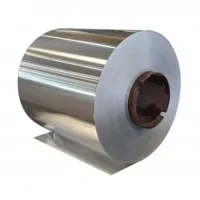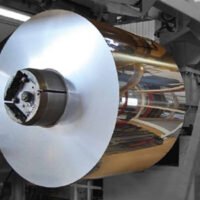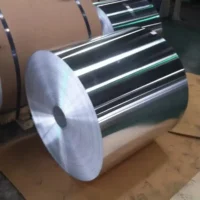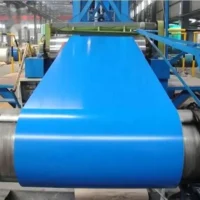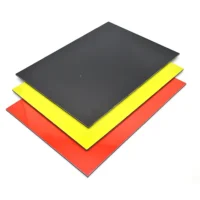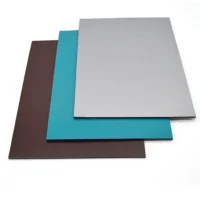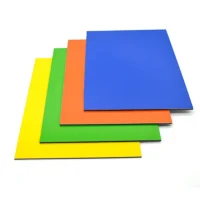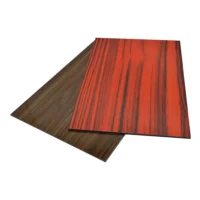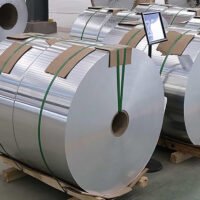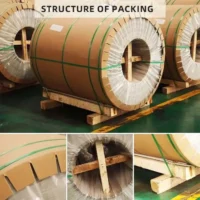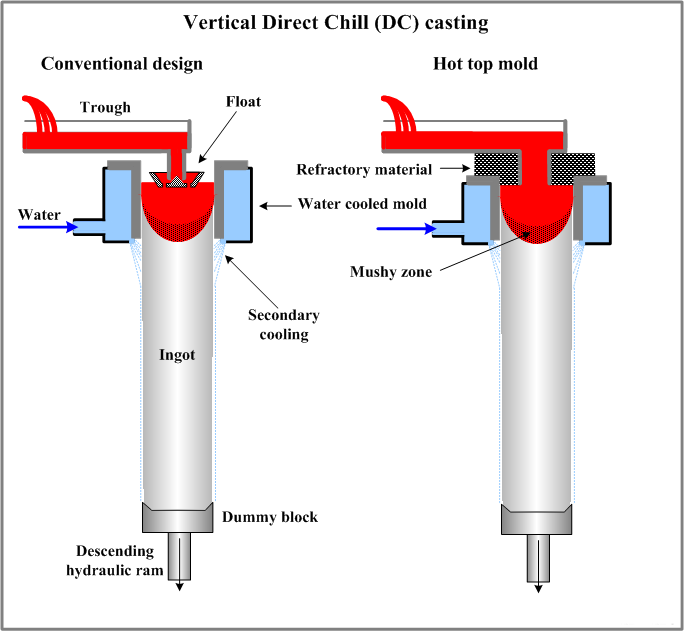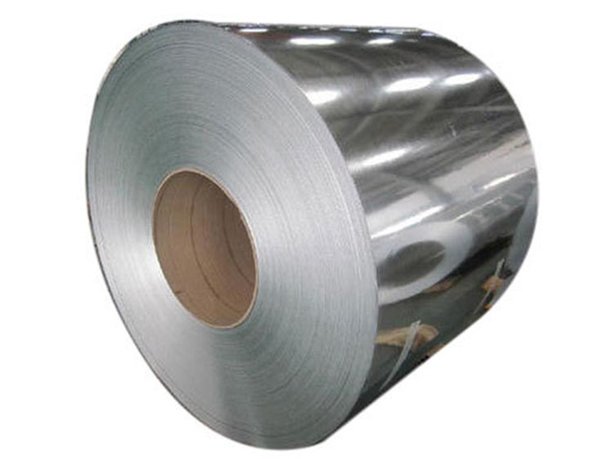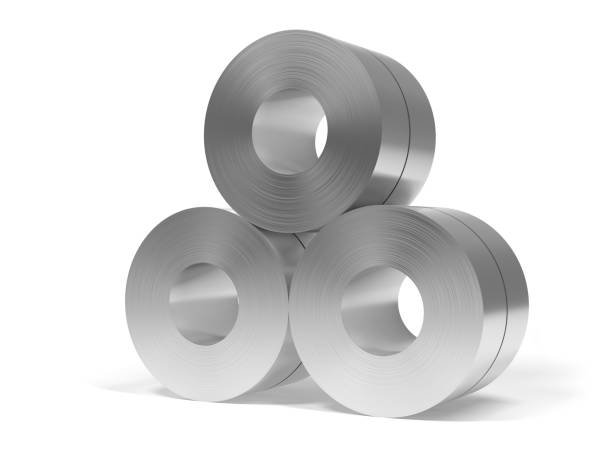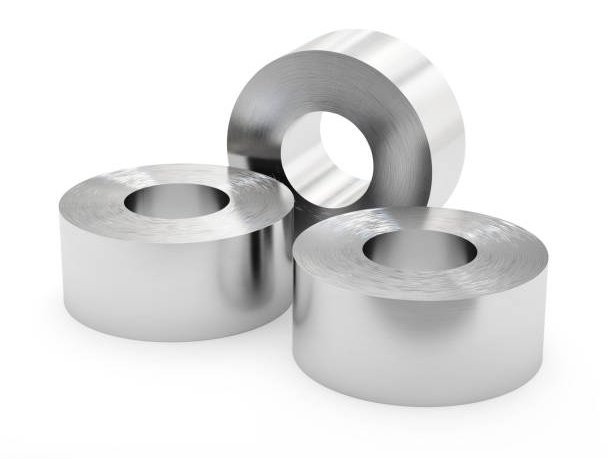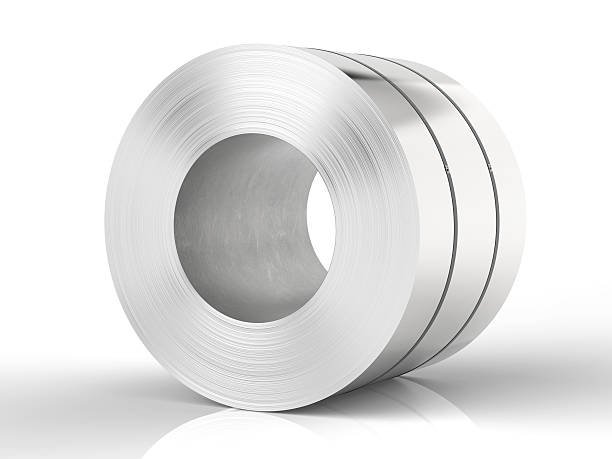3003 Aluminum Coil
3003 Aluminum Coil
Application Market: Cell Phone Battery Shell Material, Lamp Material, Road Sign, Interior Decoration, Wine Bottle Cap, Beverage Bottle Cap, Cosmetic Cap, etc.
| Width: 40-2650mm | ||
| Thickness: 0.2-5mm | ||
| Length: Customizable as required | ||
| Mother Coil: DC or CC Aluminum Coil | ||
| Temper: O, H12, H14, H16, H18, H19, H22, H24, H26, H28, etc. | ||
| Surface: Oxidation, Precoating, Mirror Finishing, etc. | ||
| Free Sample Size: A4 Paper Size | ||
| MOQ: 3T | ||
| Payment Terms: T/T, L/C, D/P | ||
| Delivery Time: Normally Within 15-30Days |
An aluminum coil is a rolled metal product calendered by a finishing mill and processed by drawing and bending angles without smooth flying shear. It is the raw material of aluminum strips and plates. The slitting equipment can cut the aluminum roll into strips, and the flattening equipment can make the aluminum coil into a sheet.
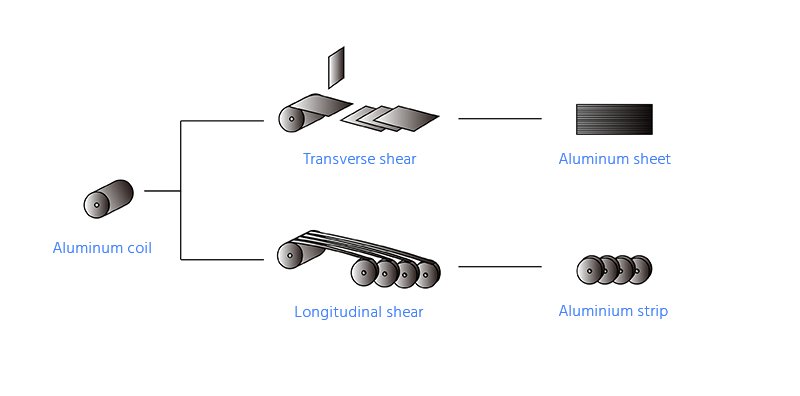
3003 Aluminum Coil DC / CC International Alloy designation (For Reference)
The parameters of the 3003 aluminum coil and pre-painted 3003 aluminum coil are identical to those of the International Alloy Designations System for 3003 Aluminum sheets.
| Alloy Series | National Standard | American Standard | Europe Standard |
|---|---|---|---|
| 3000 Series | 3003 Aluminum Coil | 3003 Aluminum Coil | – |
3003 Aluminum Coil Chemical composition
| Chemical composition | Content(%) |
|---|---|
| Si | ≤0.60 |
| Cu | ≤0.10 |
| Mg | – |
| Zn | ≤0.25 |
| Mn | 1.0-1.5 |
| Ti | – |
| V | – |
| Fe | ≤0.70 |
| Al | ≥98.0 |
3003 aluminum coil, a high-quality AL-Mn series aluminum alloy, is the most widely used anti-rust aluminum material 3003. This top-tier alloy aluminum coil is favored for its excellent formability, weldability, corrosion resistance, and wide range of applications.
Compared with other aluminum alloy materials, the 3003 aluminum coil is versatile and suitable for various applications. It is commonly used in low-load parts with high plasticity requirements and good weldability in liquid and gas media, such as fuel tanks, gasoline or lubricating oil conduits, and different liquid containers. It is also used in deep-drawn small-load parts such as food and chemical product handling and storage devices, tank tanks for transporting liquid products, multiple pressure vessels and pipelines processed in thin plates, general utensils, heat sinks, makeup plates, copiers, rollers, Marine materials, and other industry products.
3003 aluminum coil properties
| 3003 Aluminum Coil Property | Value |
|---|---|
| Length | Customizable As Required |
| Width | 100mm-2650mm |
| Thickness | 0.2mm-5mm |
| Temper | O, H12, H14, H16, H18, H19, H22, H24, H26, H28, etc. |
| Tensile Strength | ≥200 MPa |
| Yield Strength | ≥110 MPa |
| Elongation | ≥20% |
3003 Aluminum Coil DC / CC Temper designation (For Reference)
| Temper | Definition |
|---|---|
| O | Annealed |
| H12 | Strain Hardened, 1/4 Hard |
| H14 | Strain Hardened, 1/2 Hard |
| H16 | Strain Hardened, 3/4 Hard |
| H18 | Strain Hardened, Full Hard |
| H22 | Strain Hardened and Partially Annealed, 1/4 Hard |
| H24 | Strain Hardened and Partially Annealed, 1/2 Hard |
| H26 | Strain Hardened and Partially Annealed, 3/4 Hard |
| H28 | Strain Hardened and Partially Annealed, Full Hard |
- Unmatched strength: This coil boasts remarkable tensile and yield strength thanks to a precise alloy ratio and production process, ensuring consistent performance in diverse environments. Its strength is 10% higher than 1100 and offers improved formability.
- Enhanced corrosion resistance: The 3003 aluminum coil’s ability to resist corrosion, especially in oceanic and humid environments, is significantly enhanced by adding manganese. This feature makes it exceptionally durable and a reliable choice for such conditions.
- Effortless processability: The 3003 aluminum coil’s high malleability and weldability make it a versatile choice, allowing easy processing into various shapes and sizes. This feature caters to diverse needs and can attract potential buyers looking for such flexibility.
- Exquisite surface: Following special surface treatment, the 3003 aluminum coil exhibits a smooth, metallic surface with a lustrous finish, elevating its aesthetic appeal and decorative impact.
WanTai Aluminum is happy to provide you with various aluminum coils, such as color-coated aluminum coils, checkered aluminum coils, and white aluminum sheet trim rolls. Please contact our professional sales butler team if you have any requests.
3003 Aluminum Coil: Pros and Cons
Pros
- Good Formability: The 3003 aluminum coil has excellent formability, making it suitable for deep drawing, stamping parts, models, and shell processing to meet various complex shapes and high-precision processing requirements.
- Good Corrosion and Rust Resistance: The manganese element in the 3003 aluminum coil provides good corrosion resistance, effectively resisting natural erosion from the environment, such as acid rain, oxidation, and other phenomena, thus extending the product’s service life.
- Durable and Versatile: With high strength and plasticity, the 3003 aluminum coil is a versatile material that outperforms other aluminum alloys. It can withstand more significant pressure and impact while maintaining good ductility and machinability, and it is suitable for a wide range of applications.
- Good Thermal Conductivity: The 3003 aluminum coil can efficiently conduct the heat generated by the battery, improving battery heat dissipation performance and extending its service life.
- Environmental Advantages: The 3003 aluminum coil, as a recyclable resource, offers significant environmental benefits. By choosing this material, we can contribute to reducing the environmental burden through recycling, fostering a sense of responsibility and consideration for the planet.
Cons
- Inability to Strengthen Surface Strength: The 3003 aluminum coil cannot strengthen the surface strength of the aluminum alloy plate/roll through the heat treatment process. So, it is generally widely used in cold tie production and processing.
- Price Factor: While the price of the 3003 aluminum coil is relatively reasonable, it may still be high compared to other materials in some cases, which may affect its use in some cost-sensitive applications.
Therefore, it’s crucial to note that the specific use of the 3003 aluminum coil should be selected according to the requirements and application scenarios. This will ensure that you make informed decisions and choose the most suitable material for your needs.
Differences between DC Casting and CC Casting
The thickness of 0.7 mm refers to the thickness of aluminum coils, commonly used in various industries for roofing, cladding, and fabrication applications. So, comparing the quality of aluminum coils with a 0.7 mm thickness through some details on DC and CC Casting could help us get a clear and reasonable result.
DC (Direct Chill) Casting:
- The direct chill casting process produces a magnificent and uniform aluminum grain structure.
- This fine-grain structure gives aluminum strength, formability, and corrosion resistance compared to other casting methods.
- Direct chill-casting aluminum coils are often used in applications that require deep drawing or complex forming, such as automotive body panels, heat exchangers, and food/beverage cans.
- The 0.7 mm thickness is on the thinner end for DC casting aluminum. However, this gauge is still suitable for many formed and fabricated components.
CC casting (Continuous Casting):
- Continuous Casting is a more economical process than DC casting.
- CC-casting aluminum billets, blooms, or slabs have a slightly larger grain structure than DC-casting. However, it is still suitable for a wide range of applications.
- CC-casting aluminum coils with a thickness of 0.7 mm are commonly used for general sheet metal fabrication, roofing, siding, and other building/construction applications.
- The 0.7 mm thickness provides a good balance of formability, strength, and lightweight properties for these types of uses.
In summary, DC-casting aluminum coils have superior mechanical properties and surface quality compared to CC-casting but at a slightly higher cost. Even so, neither DC nor CC-casting aluminum coils with a thickness of 0.7 mm can exhibit good flatness, surface quality, and dimensional tolerance and can be used in different applications depending on the project’s specific requirements.
The choice between the two kinds of production technology depends on the end product’s specific performance requirements, economic considerations for the specific application, and customer requirements. DC casting is preferred when superior formability and strength are needed. In contrast, CC casting is more economical for less demanding applications.
Advanced Color-Coated Process
Polyester-coated pre-coating Technology(PE Coating)
The polyester coating is a kind of anti-UV UV polyester resin coating; its primary component uses polymers containing ester bonds in the main chain as monomers, adding alkyd resin and an ultraviolet absorber. After baking polyester coating on the surface of aluminum (aluminum sheet, aluminum coil) many times, it forms a solid film with protection and decoration. The polyester coating protects color-coated aluminum products (aluminum sheets, aluminum coils) from exposure to the atmosphere due to temperature differences, freeze-thaw cycles, corrosive gases and microorganisms, ultraviolet radiation, wind, rain, frost, and snow.
In addition, the polyester coating can give color-coated aluminum substrate products rich color. According to gloss, the polyester coating can be divided into matte and highlight series. Therefore, the color-coated aluminum coil not only has good gloss and smoothness but also superior texture and feel and can also increase the sense of layer and three-dimensionality. It is especially suitable for interior decoration and advertising boards.
polyvinylidene difluoride coating technology(PVDF Coating)
Fluorocarbon coating is PVDF resin. It mainly refers to vinylidene fluoride homopolymer or vinylidene fluoride and other small amounts of fluorinated vinyl monomer copolymer coatings. The fluoric acid-base material with a fluorine/carbonization bond has a stable and firm chemical structure, which makes the physical properties of fluorocarbon coatings different from those of general coatings.
Fluorocarbon coatings can be divided into traditional fluorocarbon coatings and nano-fluorocarbon coatings according to the film formation structure of the surface. In 1965, the Pennwalt Chemical Company of the United States, for the first time, used fluorocarbon paint for the coating of indoor and outdoor aluminum in high-grade buildings, a wide range of color selectivity, solemn appearance, and durability for many magnificent curtain wall buildings around the world added luster.
In addition to the wear and impact resistance in terms of mechanical properties, it also shows excellent and long-term fading resistance and UV resistance in harsh climates and humid environments. After high-temperature grilling, the molecular structure of the coating is tight, and the machine has superior weather resistance. The coating manufacturer’s guarantee of the service life of the coating began to be 10 years, 15 years to guarantee more than 20 years.
American research institutions have tested and compared fluorocarbon, super, and general coatings. The samples of the coatings were exposed to hot sunlight in Florida, the United States, and exposed to the harsh environment of humid salty air for 12 years, which proves that the stability and durability of fluorocarbon coatings are 30%-80% higher than those of the other two coatings. Fluorocarbon coatings ensure that they can be used in various harsh environments. It is especially suitable for indoor and outdoor decoration in public places, commercial chains, exhibition advertising, and other decorations and displays.
If you need more specific information about 3003 aluminum coils, don’t hesitate to contact our sales team!
3003 Aluminum Coil Chemical Composition
| Chemical Element | Si | Fe | Cu | Mn | Mg | Cr | Ni | Zn | V | Ti | Zr | Each | Total | Al |
|---|---|---|---|---|---|---|---|---|---|---|---|---|---|---|
| Content (%) | ≤0.60 | ≤0.70 | 0.05-0.20 | 1.0-1.5 | – | – | – | ≤0.10 | – | – | – | ≤0.05 | ≤0.15 | Remainder |
3003 Aluminum Coil Technical Data
| Length | Customizable As Required |
| Width | 40-2650mm |
| Thickness | 0.2-5mm |
| Temper | O, H12, H14, H16, H18, H22, H24, H26, H28, H111, H112, H114, etc. |
| Application Market | Cell Phone Battery Shell Material, Lamp Material, Road Sign, Interior Decoration, Wine Bottle Cap, Beverage Bottle Cap, Cosmetic Cap, Etc. |
| Mother Coil | DC or CC Aluminum Coil |
| Surface | Oxidation, Precoating, Mirror Finishing, Etc. |
| Free Sample Size | A4 Paper Size |
| MOQ | 3-5T |
| Payment Terms | T/T, L/C, D/P |
| Delivery Time | Normally Within 15-30Days |
3003 aluminum coil properties
| Physical Property | Value |
|---|---|
| Density | 2.71g/cm3 |
| Hardness Brinell | 20-30HB |
| Melting Point | 650°C |
| Thermal Expansion | 24 x10^-6 /°C |
| Thermal Conductivity | 237W/m.K |
| Electrical Resistivity | 0.0282 x10^-6 Ω.m |
| Mechanical Property | Value |
|---|---|
| Tensile Strength | ≥200 MPa |
| Compressive Strength | ≥200MPa |
| Yield Strength | ≥110MPa |
| Elasticity Modulus | ≥70Gpa |
| Elongation | ≥20% |
| Elongation at Break | ≥2.3% |
3003 aluminum coil Corrosion resistance
The corrosion resistance of 3003 aluminum coil in acid and alkali is roughly as follows
| Medium | Anti-corrosion Capability |
|---|---|
| Ocean Water | weak |
| Salt | weak |
| Organic Acid | Common |
| fluorine, chlorine, bromine, Lodine | Poor |
| hydrochloric acid, hydrofluoric acid, acetic acid | Poor |
| alkaline, ammonia water, Lime water | Poor |
| dilute sulfuric acid, dilute nitric acid | Poor |
| ammonia Gas, sulfurous gas | Good |
| Cold concentrated sulfuric acid, Cold concentrated nitric acid | Stable |
| petroleum, kerosene, ethyl alcohol, benzene, organic compound, etc | Stable |
The Application of 3003 Prepainted Aluminum Coil
As a versatile AL-Mn alloy, 3003 aluminum alloy finds wide applications in diverse industries, including transportation, construction, and packaging. Its adaptability, demonstrated by its exceptional anti-rust properties, mechanical properties, and processing characteristics, makes it a reliable choice for various applications. This versatility instills confidence in its ability to meet the diverse needs of different industries.
- Architectural Decoration Field
- 3003 alloy aluminum coil is favored for its good corrosion resistance, flexibility, and aesthetics. Due to its good machinability, excellent weather resistance, and decoration, designers can cut, bend, weld, and other operations according to needs to achieve a variety of complex architectural designs. Therefore, the 3003 aluminum coil is mainly used to make exterior wall panels, roof panels, partition panels, and other architectural decorations, providing a solid and practical protective layer for the building. Its elegant appearance also adds beauty to the building.
- transportation industry
- In the transportation industry, the safety benefits of the 3003 aluminum coil are significant. Its lightweight and high-strength characteristics help reduce body weight, improve fuel efficiency in vehicles such as cars, trains, aircraft, and ships, and ensure the safety of the passengers and cargo. This makes it an ideal material for body, carriage, hull, and seat parts that bear large loads and various dynamic loads, such as aircraft skin, insulation frame, pipeline support, and traffic vehicle body structural parts. In addition, its use in the automotive industry for manufacturing automotive components, such as fuel tanks, gasoline, or lubricating oil conduits, further underscores its safety benefits.
- packaging industry
- 3003 aluminum coil can also be used in chemical machinery, oil drilling equipment, other fields, and as a cold die sheet. In addition, due to its good electrical and thermal conductivity, it helps to improve the stability and safety of the product. 3003 aluminum coil is also widely used in the home, electronics, and other industries, such as to manufacture home appliance shells, heat sinks, etc.
- Other Fields
- 3003 aluminum coil can also be used in chemical machinery, oil drilling equipment, other fields, and as a cold die sheet. In addition, due to its good electrical and thermal conductivity, it helps to improve the stability and safety of the product. 3003 aluminum coil is also widely used in the home, electronics, and other industries, such as to manufacture home appliance shells, heat sinks, etc.
In short, the 3003 aluminum coil has become an integral part of modern industry with its excellent performance and wide range of application fields. Whether in automotive, construction, or packaging, 3003 aluminum coil alloys provide a solid foundation for a wide range of products with stability, durability, and economy. With the continuous progress of technology and the diversification of application needs, 3003 aluminum alloy rolls/plates will play a more significant role.
In the product application of the 3003 aluminum coil, there are some common misunderstandings and pitfalls. The following are some prominent examples:
Misunderstandings
- Application Limitations.
- Some may think the 3003 aluminum coil is only suitable for specific fields, such as construction or transportation. However, because of its excellent performance, it has many applications in many other fields, such as electronic appliances, the packaging industry, furniture, and home appliances.
- Corrosion and rust problems.
- Some think metal materials, such as 3003 aluminum rolls, are prone to corrosion and rust. However, this is a myth. 3003 aluminum coil is rust-proof aluminum, mainly composed of aluminum, manganese, and other alloying elements, with good corrosion resistance. It is especially suitable for construction, transportation, and other fields.
- Improper storage.
- For thermal insulation aluminum coils, especially 3003 aluminum coils, if you ignore waterproof and moisture-proof insulation when storing them, it may lead to rust or corrosion of the aluminum coil, affecting its performance.
- Construction is complicated.
- Some people think that materials made of metal are complex and challenging to construct. However, the 3003 aluminum coil for the structure of the building is low. The design and construction are more convenient and straightforward and can be adapted to various roof modeling. Moreover, due to its lightweight, the use of simple accessories makes the overall installation process relatively straightforward, significantly reducing the strength of the construction and shortening the construction period.
- Poor stability.
- Some think the metal roof plate of the 3003 aluminum coil will be very noisy on rainy days or blown away in strong winds. However, the 3003 aluminum coil is powerful, has high stability, can withstand storms, earthquakes, hail, and other impacts, and has wind resistance up to 120mph.
- Poor lightning protection performance.
- The concern that 3003 metal roof panels will be struck by lightning is also unnecessary. The 3003 metal panel is closely connected with the overall lightning protection system of the structure, which can entirely remove the problems of lightning damage and electrostatic accumulation, adding a layer of lightning protection for the building.
Pitfalls
- Material shrinkage
- When purchasing aluminum coil materials, sometimes you encounter a low-price trap. To reduce costs, some manufacturers may reduce the alloy content or the thickness of aluminum, leading to a decline in the load-bearing capacity of aluminum profiles. Long-term use may result in bending deformation or even fracture.
- Low price temptation
- Low prices are often accompanied by quality risks when buying aluminum coil materials. Low prices may mean that the quality of the material could be better, and it may even be defective or recycled materials reprocessed.
- Quality problems
- There may be some quality defects in the production process of aluminum coil materials, such as non-metal pressing, bruising, warping, folding, and so on. These defects may affect the performance and service life of the aluminum coil, so when choosing the aluminum coil material, it is necessary to check its quality carefully.
- Ignore supplier selection
- Choosing a reputable supplier is very important. Some bad merchants may provide inferior products or false publicity, resulting in buyer losses.
To avoid these product application misunderstandings and pitfalls above, it is recommended that when buying 3003 Aluminum coil or other aluminum coil models, it is not only necessary to consider the price factor but also pay attention to the quality of the material, performance, application field, and choose a brand and supplier with a good reputation -WanTai Aluminum Industry, and consult professionals. At the same time, paying attention to the product’s storage, installation, and maintenance is necessary to ensure its long-term stable performance and service life.
WanTai Aluminum Industry Product List
| Aluminum Alloy Series | Aluminum Grade |
|---|---|
| 1000 Series | 1050, 1060, 1070, 1100, etc. |
| 2000 Series | 2014, 2017, 2024, 2A11, 2A12, 2A14, etc. |
| 3000 Series | 3003, 3004, 3005, 3104, 3105, 3A12, etc. |
| 4000 Series | 4004, 4032, 4043, 4047, 4A03, 4A11, 4A13, 4A17, etc. |
| 5000 Series | 5005, 5052, 5052A, 5052B, 5059, 5083, 5086, 5182, 5252, 5454, 5754, 5A02, 5A03, 5A05, 5A06, 5M49, 5M52, etc. |
| 6000 Series | 6005, 6005A, 6060, 6061, 6063, 6082, 6101, etc. |
| 7000 Series | 7005, 7050, 7075, 7A04, 7A09, etc. |
| 8000 Series | 8011, 8076, 8077, 8079, 8176, 8177, 8276, 8280, etc. |
| Types | Aluminum Coil, Aluminum sheet, Aluminum foil, Aluminum strip, Checkered Plate or diamond plate, etc. |
| Length(mm) | customizable as required. |
| Width(mm) | 40mm-2650mm |
| Thickness(mm) | 0.006mm-800mm |
| surface | oxidation, Precoating, wire drawing, Mirror Finishing, embossing, etc. |
| payment | T/T, L/C, D/P, etc. |
| package | Wrap in plastic or kraft paper with Moisture-proof desiccant. Pack in fumigated wooden cases and brackets. |
Different Specifications of Aluminum Coil Parameters
The following are examples of different specifications of aluminum rolls and their weight and length information for Reference:
| specification | Thickness(M) | Area(m2) | Weight(Kg) |
|---|---|---|---|
| 0.5mmx1mx1000m | 0.0005 | 1000 | 1,350 |
| 0.6mmx1mx1000m | 0.0006 | 1000 | 1,620 |
| 0.8mmx1mx1000m | 0.0008 | 1000 | 2,160 |
| 1.0mmx1mx1000m | 0.0010 | 1000 | 2,700 |
| 1.5mmx1mx1000m | 0.0015 | 1000 | 4,050 |
| 2.0mmx1mx1000m | 0.0020 | 1000 | 5,400 |
| 2.5mmx1mx1000m | 0.0025 | 1000 | 6,750 |
| 3.0mmx1mx1000m | 0.0030 | 1000 | 8,100 |
Interested In Working With WANTAI?
Please insert your contact information into the following contact form and let us know how we can help you! We will contact you as quickly as possible.
People Also Searched for 3003 Aluminum Coil
Aluminum Coil Uses, Aluminum Coil Exporter In China, Aluminum Coil Price In India, Aluminum Coil, Aluminum Coil Price Per Kg, Aluminum Coil Hs Code, Aluminum Coil Supplier In Delhi, 3003 Aluminum Coils Suppliers, CC Casting Aluminum Coil, Al 3003 Coil, Aluminum Alloy 3003 Coils Stockholders, Aluminum 3003 Coils Exporters, Aluminum 3003 Coils Manufacturers, Aluminum Alloy 3003 Coil Size, Aluminum Alloy 3003 Slitting Coil, Aluminum Alloy 3003 Coils Price List India, 3003 Aluminum Coils, Al Alloy 3003 Coil, Aluminum 3003 Coils, 3003 Aluminum Coil Distributors, Aluminum Alloy 3003 Coils, Aluminum Coils Suppliers, Aluminum Alloy 3003 Coil Supplier, Aluminum 3003 Coils Exporters, Aluminum 3003 Slitting Coil Manufacturers, Aluminum Alloy 3003 Coil Price, Aluminum Alloy 3003 Coils Distributors, Aluminum Alloy 3003 Coil, Aluminum Alloy 3003 Coils Stock, Aluminum 3003 Coil Exporter, 3003 Aluminum Coil price, 3003 Aluminum Coil size, 3003 Aluminum Coil for sale, Aluminum 3003 chemical composition, 3003 H14 Aluminum, etc.

